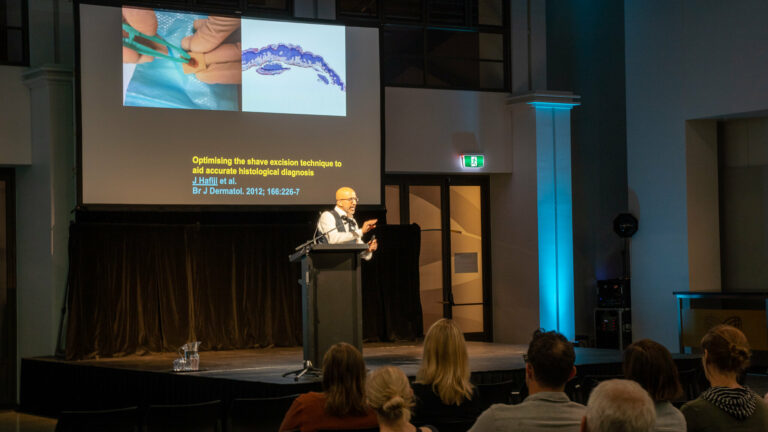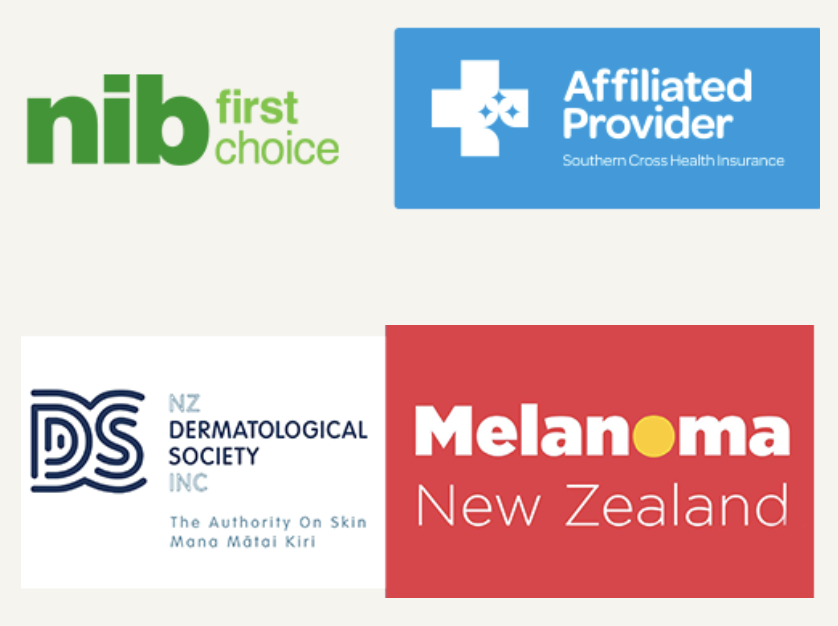Helping primary health care professionals keep up-to-date on how to best treat skin cancers is “incredibly rewarding”, says Hawke’s Bay specialist dermatologist and skin cancer surgeon Dr Juber Hafiji, following a hugely successful GP education evening.
“GPs deal with an incredible number of health conditions and issues across the whole body. That extrapolates out to a huge amount of research and development they need to keep up with, so if I can assist them by providing the latest best-practice treatment for skin in a useful format, then that is a win for the GPs, their patients, and society in general.”
New Zealand has the second highest rate in the world of melanoma, the most serious form of skin cancer; and Hawke’s Bay has one of the highest rates in New Zealand.
Skin cancer, particularly melanoma, was the focus of last week’s free educational event at Toitoi Hawke’s Bay Arts and Events Centre in Hastings, attended by about 60 GPs and nurse practitioners.
Dr Hafiji had distilled the last five years of international literature on the subject to provide his audience with the salient points, and shared with them ‘10 surgical pearls’ for excising early stage skin cancers that they could use in their practices.
“I’m focused on taking the best research in the world and making it relevant to New Zealand and, in particular, to our GP’s practices. I want health professionals to go away from hearing me with practical advice they can use to keep their patients well.”
The presentation hit the mark, said GP, Dr Sakhina Ahmad. “It was an excellent presentation on a highly relevant topic for New Zealand and Hawke’s Bay.
“He had taken the latest research from across a range of experts’ current papers – something GPs rarely have time to do for all of the conditions we need to deal with – and gave us cutting-edge information we could really use. It was refreshing, engaging and, most importantly, relevant to GP practice. It will make a material difference to my practice.
“I’m really looking forward to more of these across a range of skin topics.”
It was the first such event for health professionals Dr Hafiji had held since officially opening his practice Napier Health Centre in February.
“The response was so enthusiastic; it was amazing. We were supposed to finish up by 8.30pm but we were still there till nearly 10pm because they were so engaged and had so many questions.”
Dr Hafiji would be holding more events, and not just for health professionals. Through his practice in the United Kingdom (from where he moved just over a year ago), he provided information across the board, from allied health care providers to people in the beauty, hair and massage industries.
“I’ve already been asked to hold one for beauty therapists – they can see more of a person’s skin more often than anyone in the health field.
“If we can get to skin cancers early, especially melanoma, then the chances of cure are very high. It doesn’t matter who spots it first – the important thing is that they know what they are looking for, and the advice to give if they see something suspicious.”
Future lectures would also cover other skin conditions, with psoriasis high on the list. “It’s a common chronic condition that can make patients’ lives very miserable. Again, if I can assist my colleagues in general practice by providing them with the latest best practice, then together we can help people feel better in their skin.”


